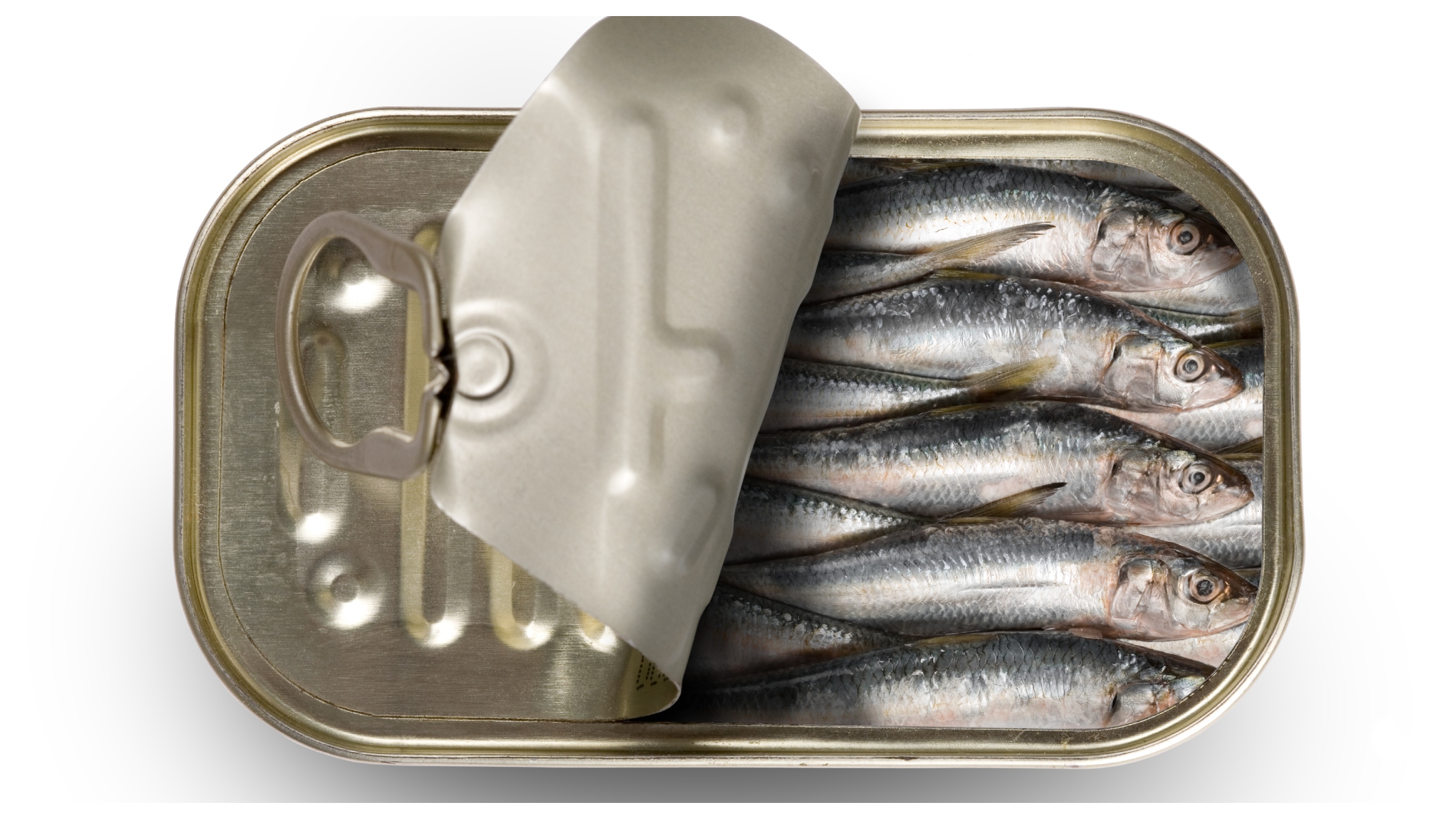
If you have been scrolling on FoodTok lately, you have definitely encountered sardines. These tiny fish filled with nutrients are very trendy as of late. Sardines are typically canned and used to be considered a last resort food for emergencies only because of their long shelf life. Sardines are experiencing a renaissance of sorts.
Just because something is trending on TikTok doesn't mean it's necessarily healthy. Thankfully, sardines are the exception to the rule and can be great for one's heart, brain, and skin health. Just make sure to avoid cans with large amounts of sodium. Your canine companion can also get in on the trend, in moderation.
One serving of the average can of sardines contains around 200 calories according to the US Department of Agriculture database. Breaking down these calories further when consuming this single serving you get 22 grams of protein and 13 grams of fat. There are no carbohydrates, fiber, or sugar but there is around 250 to 350 milligrams of sodium.
These small fish are cooked or smoked before they are canned. Once canned, sardines can be consumed whole, bones and all, because they are soft enough to be properly digested. According to Julia Zumpano, a registered dietitian with the Cleveland Clinic, they contain vitamin D, vitamin B-12, calcium, phosphorus, and selenium. Let’s not forget the potassium, iron, zinc, and choline.
More from LittleThings: I Re-Created 4 Midcentury Holiday Recipes And Had A Blast From The Past In The Kitchen
According to Frances Largeman-Roth, a registered dietitian nutritionist, sardines are a great source of protein. The average adult weighing 150 pounds should eat around 54 grams of protein a day and a single can of sardines contains around 20 grams. Sardines are also affordable, with the average can costing around $3. They will last for years in the pantry.
The protein in sardines helps one feel full longer. It gets even better "At 200 calories (or less) per serving, sardines are a low-calorie protein source," Frances explained.
Sardines have many health benefits because they are a good source of omega-3 fatty acids. They are a heart-healthy food according to Julia and Frances. “Numerous studies have found that omega-3s help reduce the risk of cardiovascular disease," Frances stated. "Omega-3s have been proven to lower blood triglycerides, decrease blood pressure, and prevent platelet aggregation (stickiness of platelets)," Julia added.
Sardines are great for your bones as well. They are an excellent source of calcium. One can gives you 50% of the recommended calcium daily quota.
Fatty acids help your brain health. “DHA (an omega-3 fatty acid) makes up 40% of the fatty acids in the brain,” Julia explains. Sardines can help with mental clarity and may help prevent decline. They also help keep your skin looking great.
The only risks associated with sardines are mercury and sodium. All fish contain small amounts of mercury from the water they live in. In large quantities, mercury can be harmful to humans. Sardines are actually the safest fish to eat and have the lowest levels of mercury. For sodium, simply check out the can and choose those with a lower amount.
Sardines are a healthy food choice but everything should be done in moderation. “It’s smart to vary your seafood sources instead of eating the same type each week,” Julia advised. According to the FDA, it's best to limit sardine intake to two to three servings a week.
Dogs are even getting in on the sardine craze. According to Dr. Lisa Lippman, a veterinarian, this is totally safe and acceptable. Dogs will also benefit from the tiny fish’s omega-3 fatty acids and nutrients but it should not be an everyday thing. "I look at sardines as a treat, and treats should be no more than 10% of your dog's caloric intake," she explained. She also noted to make sure to give your pup sardines packed in water and not oil as the oil might upset your dog’s stomach.




